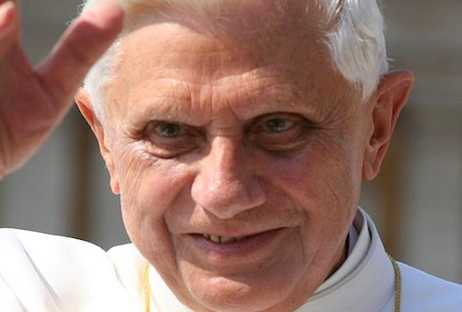
From betting companies such as PaddyPower to wily Italian politicians who gear up for national elections just a few days ahead of “resignation day” on February 28, Pope Benedict's decision to step down from the papacy has been parsed all over the world, as believers and non-believers alike try to gauge the impact of this not unprecedented but rare move.
His shock announcement took much of the world by surprise and sent the media into a frenzy.
After all, it has been more than 600 years – since 1415, when Gregorius XII resigned to bring to a temporary end the schism between Western and Eastern Christianity – that a pope had not died on the job.
But a keen observer could have seen the signs building up for quite a long time ahead of Monday's announcement.
The main item pundits have been turning to in the frantic hours that followed the news is a passage in a book-length interview Benedict gave to German journalist Peter Seewald in 2010.
“If a pope clearly realizes that he is no longer physically, psychologically and spiritually capable of handling the duties of his office, then he has a right and, under some circumstances, also an obligation to resign,” he had said then.
But in the same interview Benedict had also stressed that “one can resign at a peaceful moment or when one simply cannot go on. But one must not run away from danger and say that someone else should do it.”
As the Church has been rocked by many scandals during Benedict's pontificate, chief among them the sex abuse crisis in the US, Europe and Australia, one can argue there haven't been many “peaceful moments.”
Particularly, last year that was marked by the so-called Vatileaks affair.
Benedict – though respecting the procedures and timings of the Vatican tribunal that tried and sentenced his former butler Paolo Gabriele for stealing confidential documents and leaking them to the press – seemed keen to turn a page on that embarrassing story.
Just ahead of Christmas, he pardoned Gabriele and waived his 18-month prison term, while making sure that he and his family found work in a Vatican-connected hospital in Rome.
By then, according to the pope's older brother, Georg Ratzinger, Benedict had already made up his mind to resign.
The decision was “several weeks” in the making, according to Vatican sources, even if it was taken in the utmost secrecy and only known by a few of the pope's closest collaborators.
In fact, the Vatican spokesman, Father Federico Lombardi, confided to journalists on Monday that he, as most people in the Vatican, was quite “surprised” by the move.
Even the dean of the College of Cardinals – Angelo Sodano, who today briefly responded in “disbelief” to the pope's announcement saying it was “lightning in a clear sky” – was probably alerted only a few days ago, on February 8, when the pope granted him an unusual audience.
Nevertheless, Benedict had made some symbolic gestures in the past.
On April 28, 2009, while visiting the earthquake-stricken city of L'Aquila in central Italy, he made sure to pay homage to the tomb of Pope Celestine V, a saintly hermit who became famous for resigning the papacy in 1294, earning the eternal condemnation of Dante Alighieri who included him in his Inferno.
Benedict, instead, stopped in silent prayer at Celestine's tomb and left there his own pallium – a liturgical vest he had received when he started his pontificate.
Yet few expected Benedict, though almost 86 and growing frailer in recent months, to follow in Celestine's steps, especially so soon.
The fact that he had called the Church to celebrate a Year of Faith, which will close in November 2013, had convinced many that he was resolved to carry on with his job.
Instead, in what the Vatican newspaper L'Osservatore Romano hailed as an “extraordinary gesture of humility,” Benedict decided to step down.
He did so with “courage” and “freedom of spirit,” according to Vatican spokesman Federico Lombardi.
With his move, he definitely managed to attract praise and sympathy from the many quarters that had followed his eight-year pontificate with skepticism and even hostility.
All recognized the hallmark of a millenia-old institution that comes to grips with modernity in Benedict's acknowledgment that “in today’s world, subject to so many rapid changes and shaken by questions of deep relevance for the life of faith, in order to govern the barque of Saint Peter and proclaim the Gospel, both strength of mind and body are necessary.”
Most importantly, his last decision will probably be the one that will have the largest impact on the future of the Catholic Church, setting a precedent that future popes will find hard to ignore.
Alessandro Speciale is the Vatican correspondent for ucanews.com


